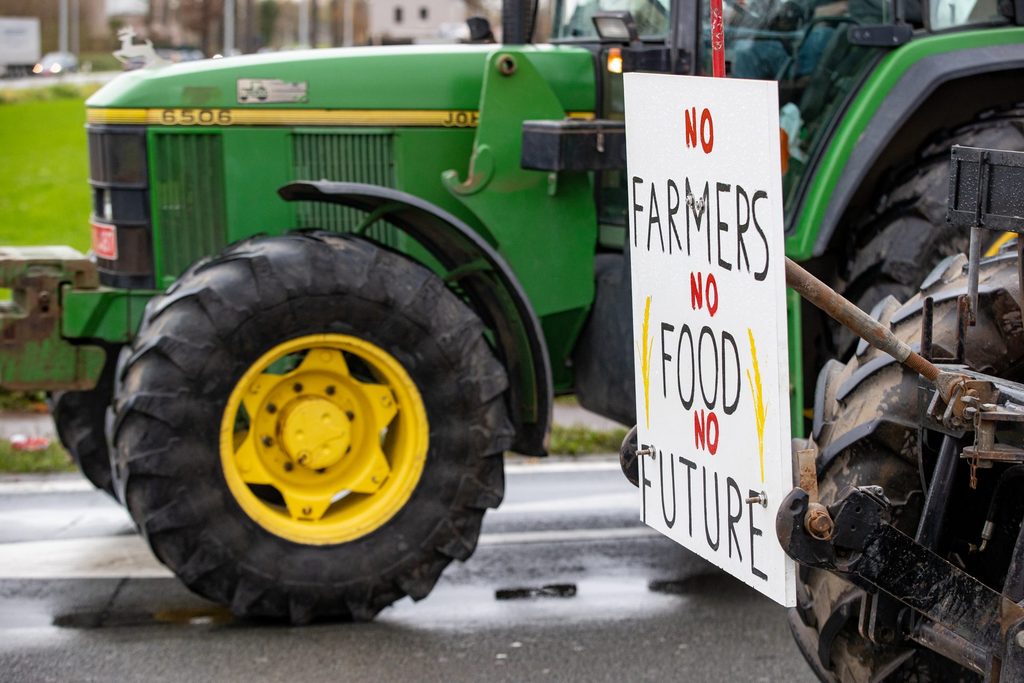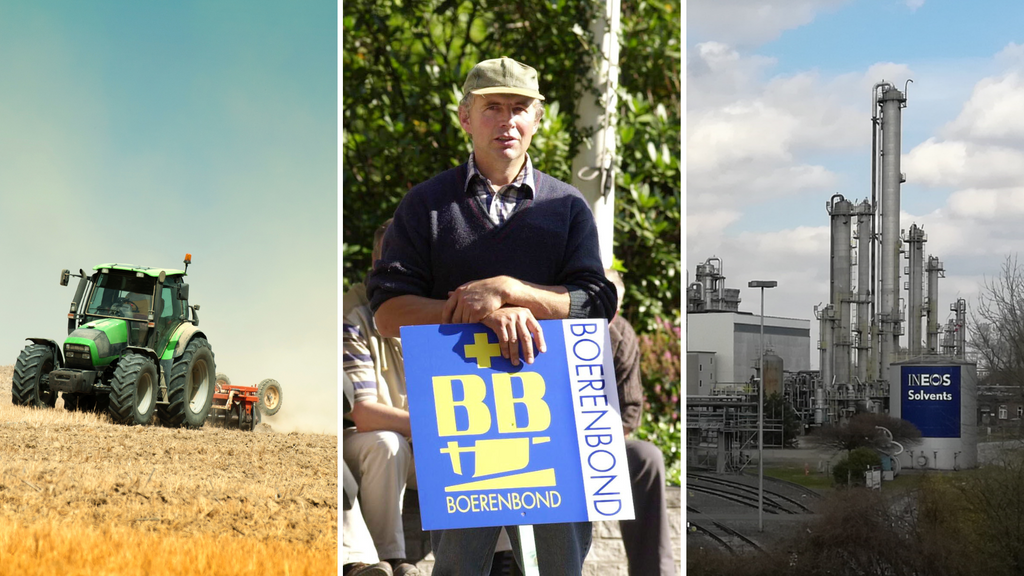With Belgium's lawmakers enjoying summer recess and the associated civil organisations and lobbying groups also winding down activities, newsrooms around the country are distinctly quieter – a period labelled "cucumber season" in Flemish, denoting the region's agrarian roots and the time to enjoy the fruits of the land.
But the absence of parliamentarians hasn't quelled protest against their policies, with Antwerp being the latest site of manifest farmers' frustration as a procession of hundreds of tractors is today gathering in a show of force against the region's highly divisive nitrogen policy.
It is not the first time tractors have rolled into urban areas, the oversized vehicles making the sector's anger difficult to ignore. Not to be mistaken as docile folk of the fields, Flemish farmers are fighting for their livelihoods against the nitrogen policy that has already come close to breaking the region's government.
To recap, the decisive regulation aims to substantially decrease the region's nitrogen emissions to bring it within EU standards (a 50% reduction is needed over the next seven years). But this won't just be a question of altering practices to clean farming up – the worst offenders are beyond saving and will have to cease activities.
Not only are farmers incensed for their own sakes, the law pits them against the other big polluter: industry. The rift splits the region along key fault lines – rural vs. industrial, heritage vs. modernisation. This clash has led to heated discussion about identity and frames the policy as an insidious master plan to fundamentally alter the social fabric.
Today's protest comes in light of government backing for a new Ineos chemical plant in Antwerp, despite serious reservations about the nitrogen pollution this will create. Farmers view this as preferential treatment that makes concessions to strengthen the region's industrial economy to the detriment of their way of life.
The same dispute has already transformed politics in the Netherlands – could this define Belgium's upcoming elections? Let @Orlando_tbt know.
Belgium in Brief is a free daily roundup of the top stories to get you through your coffee break conversations. To receive it straight to your inbox every day, sign up below:
1. 'Worryingly' high PFAS levels in blood across Flanders
Antwerp is not the only place where blood tests have shown high levels of PFAS in residents' blood; research by climate organisation Climaxi has now recorded concerning levels across five municipalities in Flanders. Read more.
2. Tractor protest in Antwerp: Show of force as hundreds of farmers denounce nitrogen policy

Credit: Belga/Kurt Desplenter
Hundreds of tractors are on their way to the parking lot of Spoor Oost in Antwerp as part of a protest action by Farmers Defense Force, a new action group that opposes the agreement of the Flemish government to limit nitrogen emissions. Read more.
3. What to do in Brussels this weekend: 18 - 20 August
The theme for this weekend's list of events in Brussels is very clearly 'Alternative Festivals' – perfect for those who want to soak up the festival atmosphere without reaching too far into their wallets. Read more.
4. Flanders renters needlessly pay hundreds of euros in extra property taxes
Find out how your landlord might be discreetly ripping you off. Many residents of Flanders are currently paying hundreds of euros in unnecessary property taxes every year. Read more.
5. 40% of Belgian vets quit after three years
After just three years in the profession, 40% of young vets throw in the towel, Het Belang van Antwerpen reports. Veterinarians cite long hours, burnout, and rude clients as their motivation for quitting. Read more.
6. NATO official apologises after suggesting Ukraine could cede territory to Russia
A senior NATO official has apologised after suggesting that Ukraine could cede territory to Russia in exchange for formal membership of the alliance. Read more.
7. New Covid-19 variant being 'closely monitored' by WHO and US
The World Health Organisation (WHO) and the US health authorities are closely monitoring a new variant of the Covid-19 virus, BA.2.86, but "the potential impact of its numerous mutations is unknown for now", they announced on Friday. Read more.

